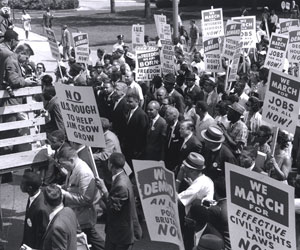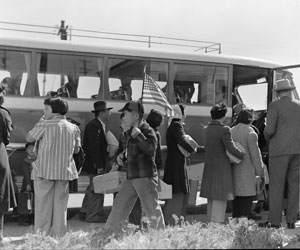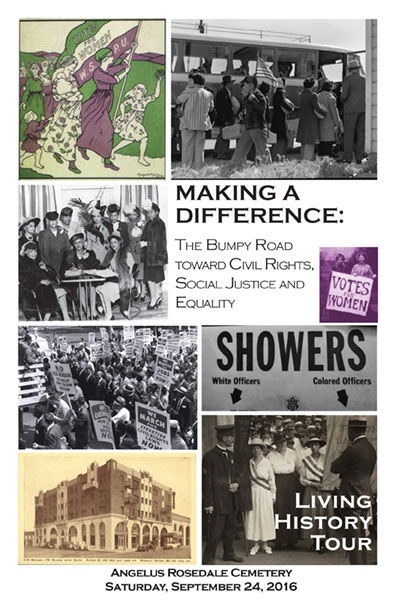 MAKING A DIFFERENCE:
MAKING A DIFFERENCE:
The Bumpy Road toward Civil Rights, Social Justice and Equality
The 26th Annual Living History Tour
Angelus Rosedale Cemetery
Saturday, September 24
Tours begin from 9 a.m. until Noon
History Comes Alive at the landmark Angelus Rosedale Cemetery on Saturday, September 24, as we explore the tumultuous journey in this nation toward equal rights for all, regardless of race, gender, or religion. At this year’s Living History Tour, visitors will “meet” historic personages whose life stories reflect the fight for a variety of civil rights, including the right to live wherever one wishes, to vote, to equal treatment, and to obtain social freedom.
Actors, in costume and at graveside with set vignettes, will give first-person portrayals of some of the people who are buried here, including a well-known suffragette who gave speeches across the state; a developer who established a resort town nicknamed the “Black Palm Springs;” a Japanese-American whose family was uprooted in 1942 and sent to a relocation camp, along with a lawyer who lobbied against these internments; one of the original elders of the oldest black church in Los Angeles; and one of the original owners of the Dunbar Hotel on Central Avenue.
You'll even hear from Oscar-winning actress Hattie McDaniel, who became a civil rights activist when she was sued for daring to purchase a mansion in an exclusive neighborhood.
This year’s Living History Tour features:
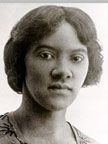 • Vada Somerville, a founder of the NAACP’s Los Angeles chapter and the first female African-American dentist to graduate from USC. In 1928 she and her husband, John, erected the Somerville Hotel (now known as the Dunbar Hotel), a luxury establishment open to people of color;
• Vada Somerville, a founder of the NAACP’s Los Angeles chapter and the first female African-American dentist to graduate from USC. In 1928 she and her husband, John, erected the Somerville Hotel (now known as the Dunbar Hotel), a luxury establishment open to people of color;
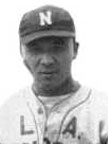 • George K. Matsuura, Japanese-American baseball pitcher in the Nisei League in the 1930s who was “evacuated” from his West Adams home in 1942 and relocated to Camp Amache in Colorado before joining the U.S. Army to fight in World War II;
• George K. Matsuura, Japanese-American baseball pitcher in the Nisei League in the 1930s who was “evacuated” from his West Adams home in 1942 and relocated to Camp Amache in Colorado before joining the U.S. Army to fight in World War II;
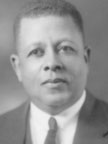 • Hugh E. MacBeth, African-American lawyer, Utopian and in the 1940s, staunch advocate for Japanese-Americans’ property rights and their rights as U.S. citizens;
• Hugh E. MacBeth, African-American lawyer, Utopian and in the 1940s, staunch advocate for Japanese-Americans’ property rights and their rights as U.S. citizens;
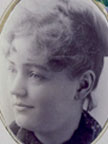 • Josefa Tolhurst, president of the Friday Morning Club and a strong campaigner for women’s right to vote;
• Josefa Tolhurst, president of the Friday Morning Club and a strong campaigner for women’s right to vote;
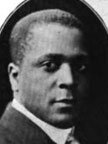 • Willis O. Tyler, civil rights attorney who fought for the rights of Buffalo soldiers;
• Willis O. Tyler, civil rights attorney who fought for the rights of Buffalo soldiers;
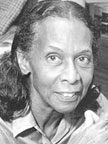 • Almena Lomax, firebrand civil rights journalist who chronicled her own experiences as well as the lives of civil rights leaders like Martin Luther King, Jr.; and
• Almena Lomax, firebrand civil rights journalist who chronicled her own experiences as well as the lives of civil rights leaders like Martin Luther King, Jr.; and
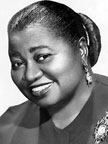 • Hattie McDaniel, who along with being an Oscar-winning actress was also a civil rights activist who played a pivotal role in ending “racial covenants” that prevented people of color from living in some Los Angeles neighborhoods, including West Adams Heights.
• Hattie McDaniel, who along with being an Oscar-winning actress was also a civil rights activist who played a pivotal role in ending “racial covenants” that prevented people of color from living in some Los Angeles neighborhoods, including West Adams Heights.
• Sidney Dones, an African-American film director and actor in the 1920s who also was a real estate developer responsible for the Booker T. Washington building on Central Avenue. In 1924 he led a group of black investors who purchased 1,000 acres in the Santa Clarita Valley, establishing “Eureka Villa” (later known as Val Verde), a vacation resort that welcomed people of color;
• Pearl Ng Kim Louie, whose Chinese-born mother was brought to San Francisco as a child slave in the 1860s, and whose parents both were among the earliest Chinese Christians in Central California;
• John Ballard, who was by 1859 a free man in Los Angeles but who had been a slave in Kentucky. His success in business led him to help build First African Methodist Episcopal’s (FAME) first church, an institution that had been organized by Biddy Mason (another former slave) in her living room in 1872;
Rosedale Cemetery (now Angelus Rosedale) was founded in 1884, when Los Angeles was a small town and its location at what is now the corner of Washington Boulevard and Normandie Avenue was in the countryside, outside the city limits. It was the first cemetery in Los Angeles open to all races, faiths, and creeds, and it was the first to use a new approach in design called “lawn cemeteries…where nature and art conspire to surround the burial places of the dead with beautiful trees and flowers, natural scenery and works of monumental art.”
Angelus Rosedale Cemetery is also home to generations of Angelenos from every walk of life. Each year, WAHA tells some of their life stories while touring the historic grounds with the cemetery’s elaborately-carved monuments. In this way, the Living History Tour helps educate the citizens of Los Angeles about our history, and the community’s cultural heritage.
TICKET SALES/TOUR TIMES
Tours will depart approximately every 25 minutes, beginning at 9 a.m. (Advance paid reservations are required; each tour group's participants are pre-assigned. This tour usually sells out. A limited number of tickets may be available on the day of the tour, space available basis.)
Tickets:
Online sales are now closed.
A limited number of tickets will be available on day of tour, but only AFTER 11:00 a.m.: $40
Time Slots
When you purchase your ticket, please indicate which general time slot you prefer. We will have several guided tours departing within each slot and will assign one to you. (Be sure to let us know if you have friends who you would like to be in the same tour with you – e-mail tours@westadamsheritage.org with their names.) We will confirm your time via e-mail.
If your desired time category is sold out, please e-mail tours@westadamsheritage.org, and you’ll be placed on the list to be notified in the case of cancellations. Do let us know if you plan to join a previously-confirmed group who plan to tour together.
Early morning (departing between 9 a.m. & 10 a.m.) (SOLD OUT)
Late morning (departing between 10 a.m. & 11 a.m.) (SOLD OUT)
Mid-day (departing between 11:30 a.m. & Noon)
Angelus Rosedale Cemetery is located at 1831 West Washington Blvd. in Historic West Adams. The tours each last 2-3 hours. This is an outdoor walking tour over uneven grounds, and the cemetery is also slightly hilly; please wear comfortable walking shoes and sun protection.
For more information:
Phone: 323-909-WAHA, Email: tours@westadamsheritage.org.
|
|
|
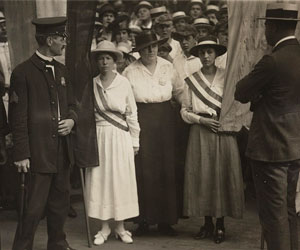 |
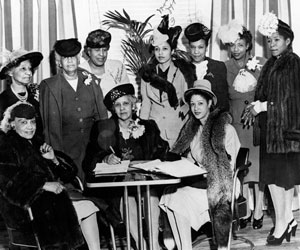 |

